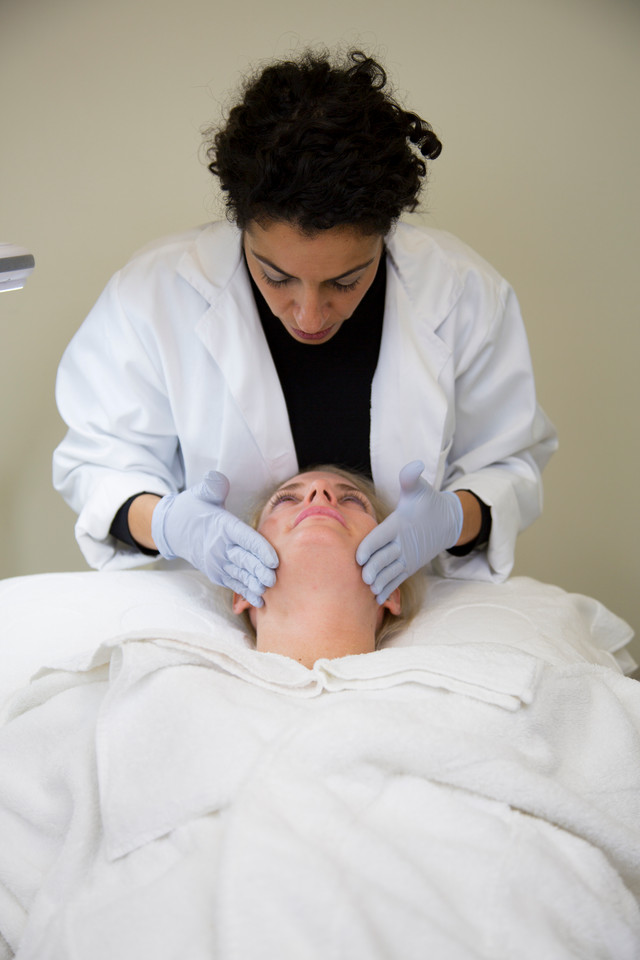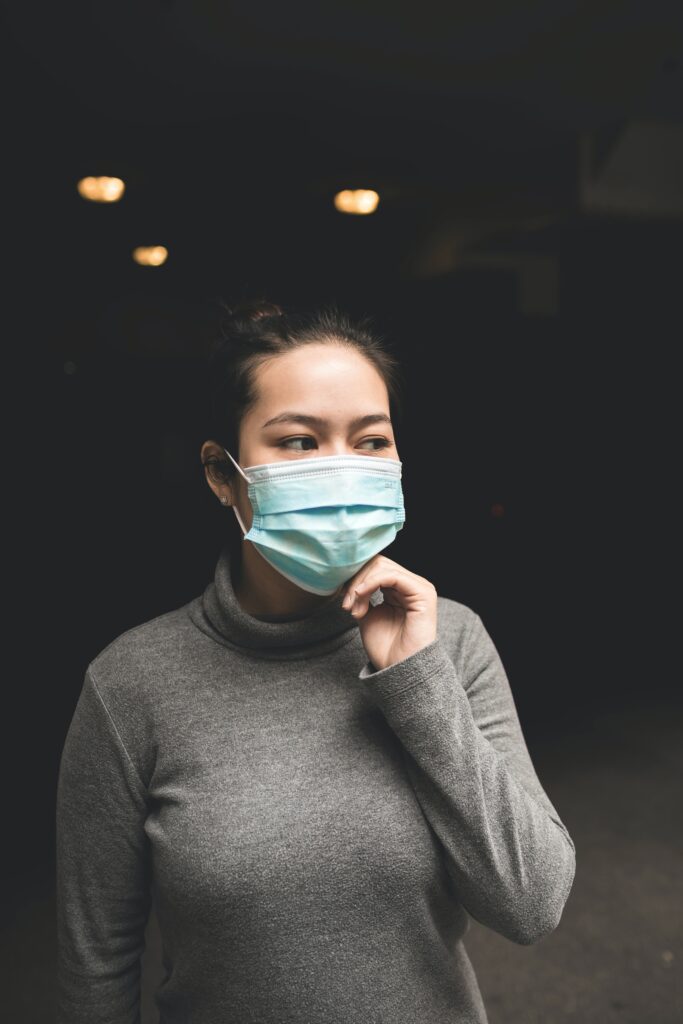Who has heard of ‘Maskne’? It means ‘mask-acne’, which is acne and skin irritation caused by the constant wearing of facemasks. In light of the restrictions (including mandated mask-wearing) we’ve experienced in Queensland and NSW over the last year, Dr Mayada and the team are seeing more and more patients dealing with mask-related acne.
Generally, ‘maskne’ is an umbrella term for several skin conditions such as acne, rosacea, contact dermatitis and eczema, which while generally are not directly caused by mask wearing, can become very much inflamed and irritated.

What causes ‘maskne’?
In most cases, maskne is the result of clogged pores, oil, dead skin and bacteria build-up. Wearing a mask traps these elements to your skin and restricts air-flow. You may also find that your skin is particularly sensitive to the material your mask is made from – especially if it is a synthetic such as rayon or nylon.
Furthermore, if you are wearing a mask that is ill-fitting, it will move and rub against your skin, causing friction and irritation.
How to Avoid It
Dr Mayada has some tips for you to help avoid damage to your skin:
Wash your face regularly
If you regularly wash your face in the morning, and you are suffering from ‘maskne’, you might like to try switching to washing your face directly after taking off your mask for the day. This means you can get rid of any skin pollutants that might be lingering on your skin.
Use a gentle cleanser
Avoid ingredients in your face cleanser such as alcohol and perfumes or fragrances. Using a gentle cleanser with quality ingredients can make a world of difference to the way your skin responds to facemasks. If you have sensitive skin, ask your doctor or dermatologist about the best type of medicated cleanser for your skin.
Bin your disposable masks after one use
It’s easy to pick up lazy habits such as re-using your disposable mask, but they are not designed to be used more than once. Always make sure you take a couple of fresh masks with you when you think you might need more than one.
Wash your material masks after every use
When you first get your brand new material mask, it’s a good idea to wash it before you wear it, with gentle, unscented soap (careful as harsh detergents can only irritate your skin further). Again, after you come home each day make sure to pop your mask in the wash so it’s safe and ready for the next day’s use.
Take a break from makeup
When you’re wearing your facemask, nobody can see what’s underneath – the perfect excuse to go without makeup if you feel as though it may be blocking your pores and causing you skin issues. You might save a bit of makeup product, too. This is a win-win situation in our eyes!

Make sure you have the right mask
Take a closer look at the mask you use – does it fit snuggly to the curves of your lower face, or does it hang loosely and rub? Does it sit too tightly over your cheekbones or nose, leaving red marks? Does it sit properly on your face without you having to readjust it? Readjusting your mask every couple of minutes means your hands come into contact with your face lots – again, potentially causing transfer of bacteria.
Visit our skin doctors to find a solution

A round of applause for your article post. Much thanks again. Awesome. Camellia Gard Nerin